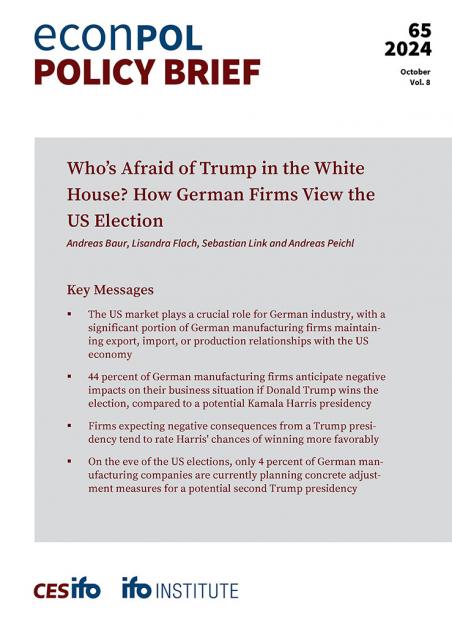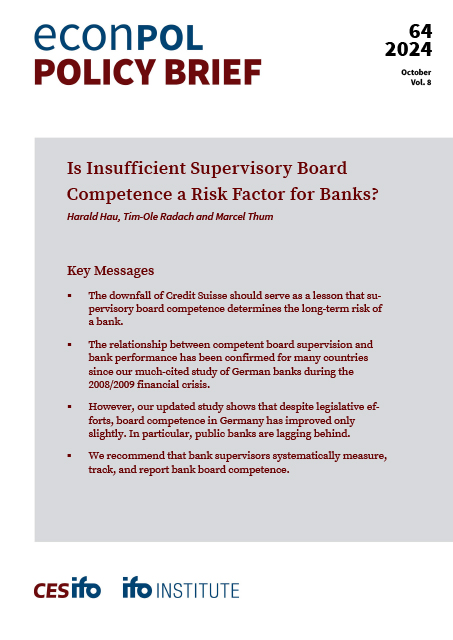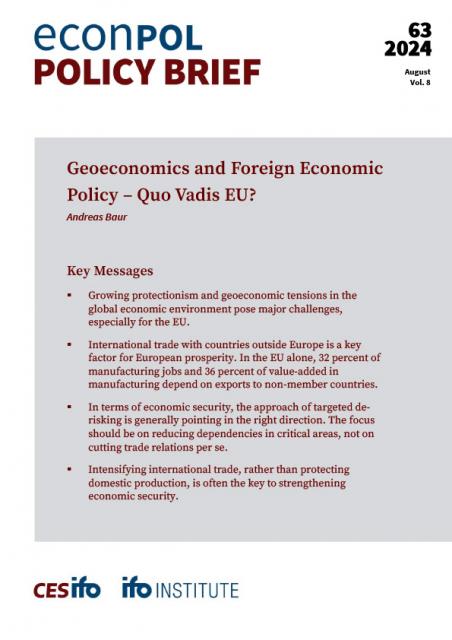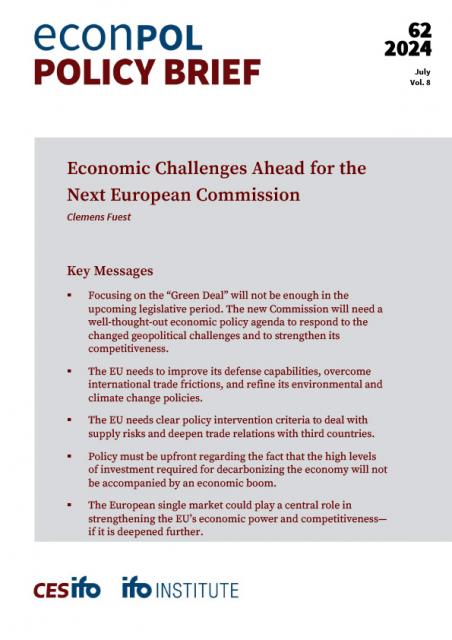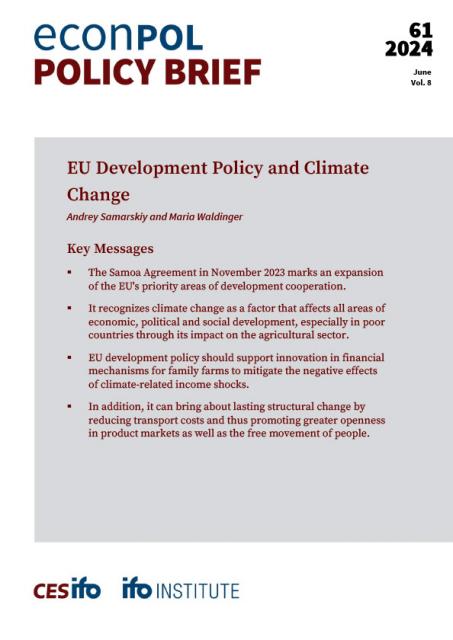EconPol Policy Briefs are short articles providing key findings of policy-related studies and policy implications from recent policy relevant economic research. Grounded in evidence-based insights, the Policy Briefs discuss current topics in economic and fiscal policy within a wide range of specific areas of expertise. By discussing implications of policy scenarios and the impact of economic policies in the face of the rapidly evolving challenges faced by the European economies and their global partners, EconPol Policy Briefs provide a well-founded economic policy advice to European policymakers. Focusing on key messages and policy conclusions, the Policy Briefs transfer expertise from researchers into the public debate and facilitate informed decisions.
